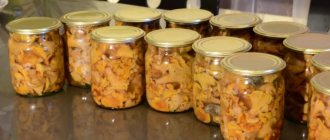Fresh eggs from poultry that eat natural grains, grasses and vegetables are considered a valuable food product.
It has been proven by practice that under the same storage conditions, they remain fresh much longer than store-bought ones.
The reason lies in the proper nutrition of the poultry and the absence of long transportation to the consumer with inevitable shaking of the cargo.
We will tell you further how much and under what conditions homemade eggs are stored.
Under what conditions, temperature?
According to the recommendations of Rospotrebnadzor, food eggs intended for storage must meet the following parameters:
- have a shell without chips, cracks, holes, or sagging;
- free from contamination;
- have a standard size and weight.
The presence of small cracks in the shell is determined by shining it through with a flashlight or using an ovoscope.
If the shell is “marbled” and has lightened areas, such eggs need to be cooked immediately, without being laid. Special cardboard or plastic containers with individual cells are used as containers. The eggs are placed there with the blunt side up. It is recommended to wash plastic packaging that has already been used with soap or soda and dry it dry.
You can keep the eggs in regular boxes or bowls, laying them on their sides , but it is advisable to layer them with a clean cloth. During storage, it is recommended to turn them over on the other side daily to avoid mixing the air chamber.
The optimal storage temperature for poultry eggs is +4 degrees with a humidity of 60%, which corresponds to the parameters of a household refrigerator.
Influencing factors
The shelf life of eggs, boiled or raw, will be influenced by various factors, which should definitely be taken into account when determining the shelf life. If you purchase eggs in containers, as a rule, they are marked with the date of manufacture. But in most cases, we do not know when exactly the eggs of chickens or quails reached the seller’s counter. This is where you need to take some features into account.
Main factors:
- date of manufacture;
- storage conditions;
- temperature regime;
- the presence of the shell and its integrity.
As already mentioned, state standards have established the optimal temperature for storing such a product. It can vary from 0 to +20°, but not higher.
Important! Eating spoiled eggs can cause intoxication or infectious diseases. Such products contain infectious agents and pathogens, including salmonella.
Boiled or raw eggs should be stored in intact, undamaged shells. After heat treatment, the products need to be carefully inspected. If there are even small cracks, it is better not to store such eggs, but to eat them immediately.
On a note! The shelf life of a boiled egg can be extended if its shell is lubricated with refined vegetable oil after cooling.
How to properly store raw ones - in shell and without?
Deterioration of the contents of the shell occurs from the development of putrefactive bacteria that enter through holes in the shell. The cleaner the shell itself and the surrounding atmosphere, the longer the product remains fresh.
In a refrigerator
The standard shelf life of the most common in cooking, raw chicken eggs from your hens, in the refrigerator is 2-3 weeks .
They are kept in a special compartment on the door, where there are recesses for each egg. You can put the container on a shelf where the temperature is maintained at +2 +4 degrees.
If the container does not have a tight lid, food with a strong smell (smoked meats, oriental sweets, Korean salads) should not be kept nearby.
The contents of the shell, deprived of the shell, do not deteriorate in the refrigerator for only 2-3 days . The product should be kept in a tightly closed glass jar or plastic container.
Read here for how long raw and cooked quail eggs can be stored in the refrigerator, and read about the shelf life of broken eggs here.
In the room
The shelf life of raw chicken eggs in the shell at a temperature of +20 +22 degrees is 7-10 days. The packaging with them should be protected from exposure to sunlight and increased dampness. The yolk and white without the shell in the heat begin to disappear after 3-4 hours.
In the cellar, cold underground
Any private home has a wonderful place to store food - a cellar or underground. In a deep pit, tightly closed with a thick door, even at the peak of the summer heat, the temperature does not exceed 8-10 degrees. Under such conditions, fresh domestic eggs can easily last for more than 2 weeks without loss of quality .
Shelf life of boiled
Hard-boiled eggs remain edible 2 times longer than raw eggs. It is not for nothing that they still remain a favorite food for travelers who do not have the opportunity to use a refrigerator on the road.
At room temperature they do not spoil for 10-14 days, in the refrigerator for up to a month. The shelled ones are suitable for use for 2 days and 6 days, respectively.
To properly hard-boil an egg, place it in cold, slightly salted water and cook after boiling for at least 8 minutes and no more than 15 . Check to see if the egg is cooked by spinning it on a flat surface. Steep things will spin for a long time, but with half-baked contents they will quickly stop.
How long boiled eggs can be stored in the refrigerator, read here, without shells - here, at room temperature - in this article, quail eggs - in this article.
Storage at room temperature
Is it possible to store raw eggs without refrigeration? Yes. But only under certain conditions. What affects the shelf life of eggs?
- Air temperature. It is optimal if, in the room where the product is placed, the thermometer stays at 10-20°. At temperatures above 20°, embryos will begin to develop in fertilized eggs. Unfertilized ones will quickly go rotten.
- Illumination. The best storage place is a dark pantry. In the light, due to the rapid drying of the protein, the product will quickly become unsuitable for food.
- Tara. It is best to place the eggs in containers made of “breathable” materials. A cardboard box or a wicker basket works well.
- Location. The product is laid with the sharp end down in 1-3 rows.
- Variety. According to GOST, table eggs at room temperature up to +20° remain fresh for 14 to 25 days, dietary eggs - for a week. The washed product is kept at room temperature for no more than 4 days.
To protect yourself from salmonellosis, it is recommended to boil eggs soft-boiled or “in a bag” only for the first 7-10 days from the date of “production”. In the future, it is preferable to cook them only hard-boiled.
Features for chicken, quail, duck and others
In addition to chicken eggs, eggs and other types of poultry are actively used in cooking. Depending on the structure of the shell, they have different shelf life:
- Duck and goose, thanks to a special oil film on the shell, do not spoil in heat for up to 10 days and more than a month in the refrigerator.
- The shelf life of turkey and quail eggs is similar to the shelf life of chicken eggs.
- Guinea hens stay fresh for up to 2 weeks at room temperature and up to 4 months in the refrigerator.
The storage champion is the ostrich egg, with a surprisingly strong shell. In room conditions it does not deteriorate for more than 60 days. When kept in the refrigerator, it is edible even after six months!
This article will tell you about storing quail eggs, and this article about storing goose eggs.
Rules for storing eggs
Eggs have found their own special niche in our diet thanks to a truly incredible number of beneficial properties; one egg contains almost half of the elements of the periodic table.
But in addition to their benefits, eggs can also cause harm. This information will come as a surprise to many, but a spoiled egg, due to the same elements of the periodic table, releases a lot of toxic substances. The poisons that a spoiled egg releases when it enters the human body cause enormous damage to health and can even be fatal.
This is why it is so important to know how to properly store eggs, because if storage standards are violated, the egg will spoil in a couple of days, and it is not always possible to recognize a spoiled product.
Eggs can be stored both in the refrigerator and indoors; each of these types of storage has its own characteristics, which will be discussed a little later. There are general storage rules for eggs. That is, regardless of where exactly the eggs are stored, the points described below must be observed.
- the container, plate or special compartment in which eggs are stored must be dry;
- eggs should be placed with the blunt (rounder) end up;
- eggs with any damage (broken, chipped) are not subject to any type of storage;
- the temperature at which eggs are stored should not be below 0°C and above +20°C
Is it possible to increase the shelf life?
If you exclude contact of the shell contents with the external environment, it will remain sterile longer. In the old days, people, without refrigerators, resorted to various methods of preserving eggs for a long time:
- they were placed in baskets, sprinkled with sifted stove ash, coarse dry salt, and calcined sand;
- coated with melted goose or pork fat, beeswax;
- coated with clay mash;
- immersed in a solution of lime or salt (1 glass per 3 liters of water).
These methods helped to extend the freshness of the product for up to several months and wait out the molting period of chickens.
In modern conditions, the contents of the shell can be frozen. In a plastic container or tight bag at -18 degrees, the product does not lose nutritional value for up to a year.
How can you tell if a product has started to disappear?
In eggs that have lain for a long time, the air chamber at the blunt end increases, and the white “dries out” and decreases in size. If you shine a flashlight through the shell, you can see that the emptiness occupies up to half of the internal space. Such eggs should not be used for food.
Another way to check is to put the egg in water. The fresh stuff will remain at the bottom, the rotten stuff will float up , since the air in the enlarged chamber will act as a float.
Other ways to store chicken eggs
There are several interesting ways to store eggs without refrigeration. All of them have been tested over the years and the experience of many housewives, and you can also safely take note of them.
- Grease the eggs and then place them in the box with the oats, pointed ends facing down. In this case, the eggs should not touch each other. Chicken eggs should be covered with a good layer of oats on top. You can coat the shell with egg white. The protein is applied in two layers. Moreover, each layer dries well. Next, the eggs are wrapped in paper and sent for long-term storage in a dark place. For long-term storage, each egg should be greased with a mixture of melted paraffin or wax with sunflower oil.
- You can store eggs in a solution of potassium permanganate (potassium permanganate). To do this, prepare a bright pink solution of potassium permanganate and place chicken eggs in it for a few seconds. After this, dry them. Eggs treated with a solution of potassium permanganate can be stored in an apartment for 2-3 weeks. It is possible to store fresh eggs at room temperature in a mixture of charcoal and bran.
- In rural areas, sweet water is often used to store chicken eggs. Dilute 2 kg of sugar in 2 liters. Boil the syrup and wait until the sand is completely dissolved. When the syrup becomes warm, dip the testicles in it for 2-3 seconds, then dry them with a paper towel and place them in a box.
- For storage, chicken eggs should be lubricated with glycerin or Vaseline ointment. Then the eggs should be placed in a box and placed in a cool and ventilated room.
- To store eggs at home, you can use regular table salt. To do this, place the eggs loosely in the box and carefully sprinkle with coarse salt.
- In villages, eggs are prepared for storage in this way: they are put into a bag and sharply immersed in a vat of boiling water, and then dried and sent to a cold, dark place. Eggs should be laid with their sharp tips facing down.
- You can store eggs in a solution of liquid glass or lime. Moreover, if you dip each egg in melted paraffin before pouring the solution, then you can safely store such eggs for quite a long time - for 1 year. Liquid lime can be prepared as follows: dilute 0.5-0.6 kg of quicklime in 10 liters of boiled water. Let the solution sit. In this case, the solution should be thoroughly mixed every 3 hours. Then you need to strain it through a sieve or cheesecloth and then lower the eggs into it. If you like this storage method, please note that you should use only a glass or clay container for the lime mortar, and only send fresh eggs for storage. Also make sure that the level of lime is 2-3 cm above the level of the eggs. After this, the container with lime and eggs should be closed with a lid and the edges sealed with paraffin. Eggs should be stored in this form in a dry and cool place.
Adviсe
When selecting eggs for storage, pay attention not only to the integrity, but also to the strength of the shell. This indicator is influenced by the bird’s diet, which must contain minerals (calcium, sodium) and vitamins (D, A).
Poultry lays eggs in the first half of the day, so “ harvest” is collected between 9 a.m. and 2 p.m. The nests must have enough clean bedding (sawdust, hay) so that the laid eggs remain undamaged. When storing raw eggs, care should be taken to shake them so that the white and yolk do not mix.
Before storing, dry dirt on the shell is removed with a dry cloth or brush. Do not scrape the surface with a knife or wash it with water! The exception is waterfowl eggs. Their surface is covered with a fatty film that repels water, so you can remove dirt with a damp sponge.
Damaged products - how to identify
The following signs indicate damage:
- The appearance of a sulfur smell.
- When checked for transmission (in front of a powerful light source), the presence of a large air gap between the protein and the mineral shell is revealed, dark spots, blood rings or clots are visible.
- After removal from the shell, an altered state of the protein is detected - watery and transparent (at the same time, the yolk, which is round in its normal state, loses its shape).
Suitability is often checked using a simple experiment. The egg is placed in a glass of cold water. A rotten egg floats sideways and floats to the surface. The fresh egg remains at the bottom of the container . Food ingredients of questionable quality must be disposed of without regret. The use of low-quality products threatens bacterial infection, poisoning, and the development of serious pathologies.











